Ziad Doueiri Quotes & Sayings
11 most famous Ziad Doueiri quotes and sayings (director). These are the first 10 quotes we have.
“I lived through many battles - the 1973, I was young; in 1982 with the Israeli invasions, and 2006 between Hezbollah and Israel. Before I emigrated to the States in '83, I had my own very black and white views of the Israelis and the Jews in general. But you start to understand that no matter what you think, there are two perspectives.”
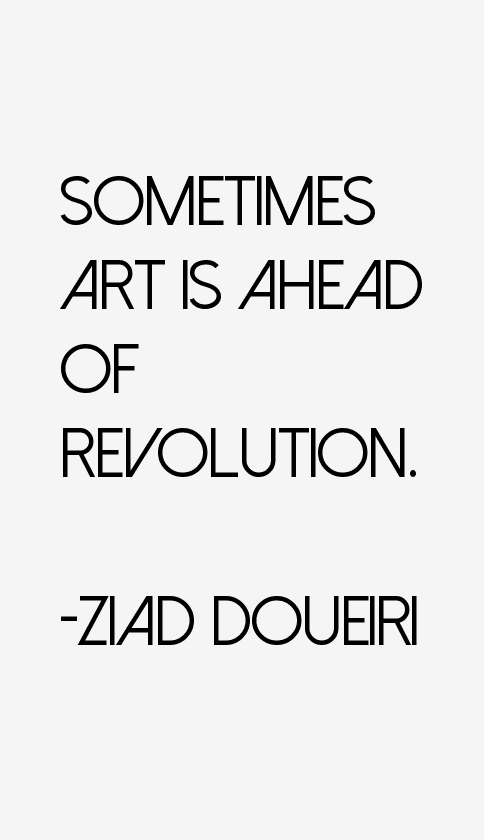
“Sometimes art is ahead of revolution.”
“I am constantly swimming on the margin, neither 100% American, French, nor Lebanese. I am none of those. I am the result of those three. Sometimes it's an asset: no one can put you in a category. That I do not make typical Lebanese, European or American films does not bother me.”
“I was born in Lebanon and emigrated to the U.S. and went back. I'd been raised in a French school in Beirut. Lebanon is a peculiar place, so bicultural it goes along with you. There is a Western influence, an Eastern influence. Most people are fluctuating between those identities.”
“I was a child during the Lebanese civil war, and I remember Israeli bombardments. So growing up, my view of Israel was completely negative. I'm not coming from a neutral place, but with time, I've had to re-examine my thinking.”
“I wrote and finished the script for 'Man in the Middle' two weeks after the September 11 bombing. It's a very American film about an ex-diplomat based in the Middle East, a leader in the U.S. administration who now sells used cars in the Middle East.”
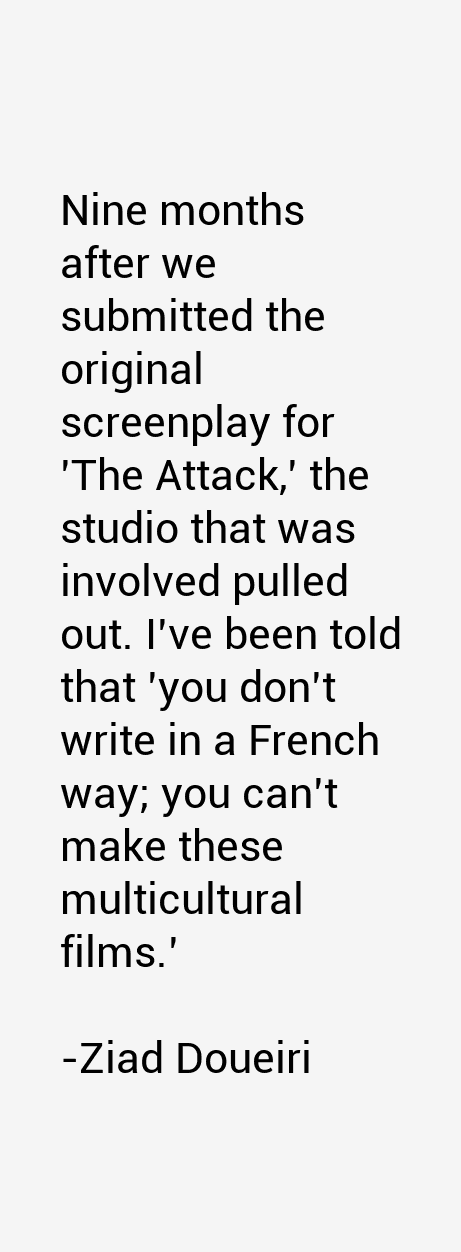
“Nine months after we submitted the original screenplay for 'The Attack,' the studio that was involved pulled out. I've been told that 'you don't write in a French way; you can't make these multicultural films.'”
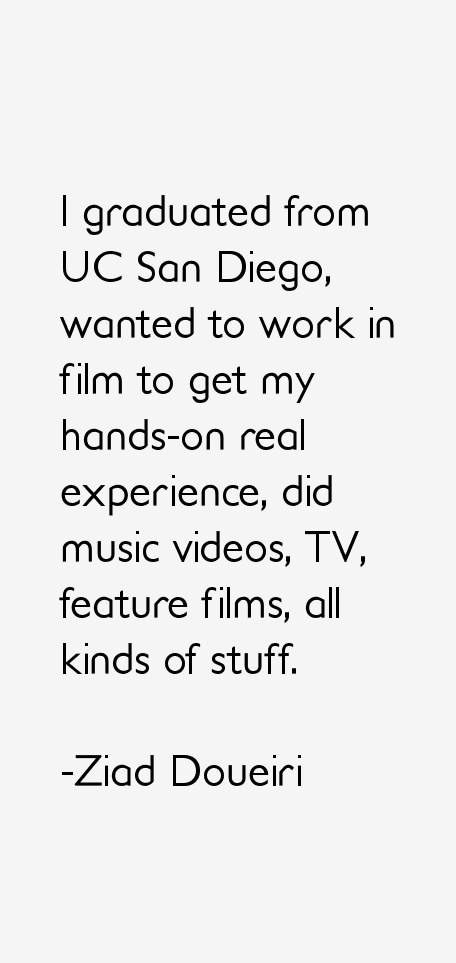
“I graduated from UC San Diego, wanted to work in film to get my hands-on real experience, did music videos, TV, feature films, all kinds of stuff.”
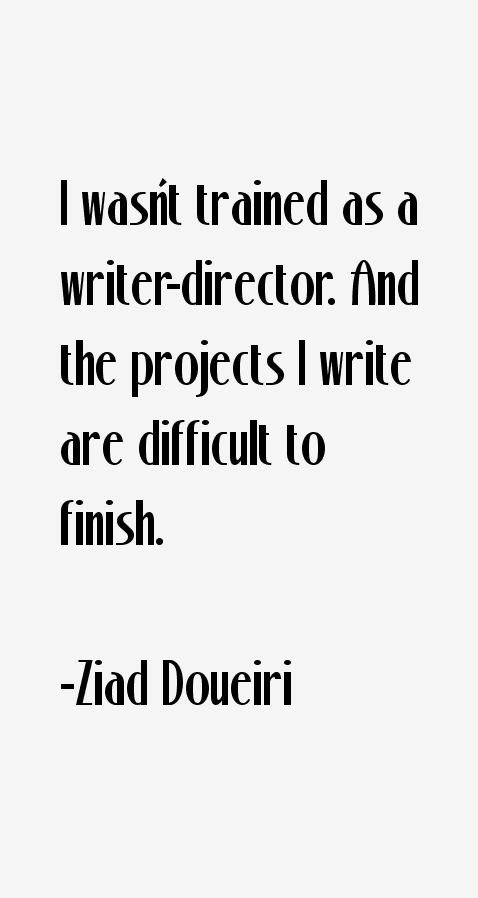
“I wasn't trained as a writer-director. And the projects I write are difficult to finish.”
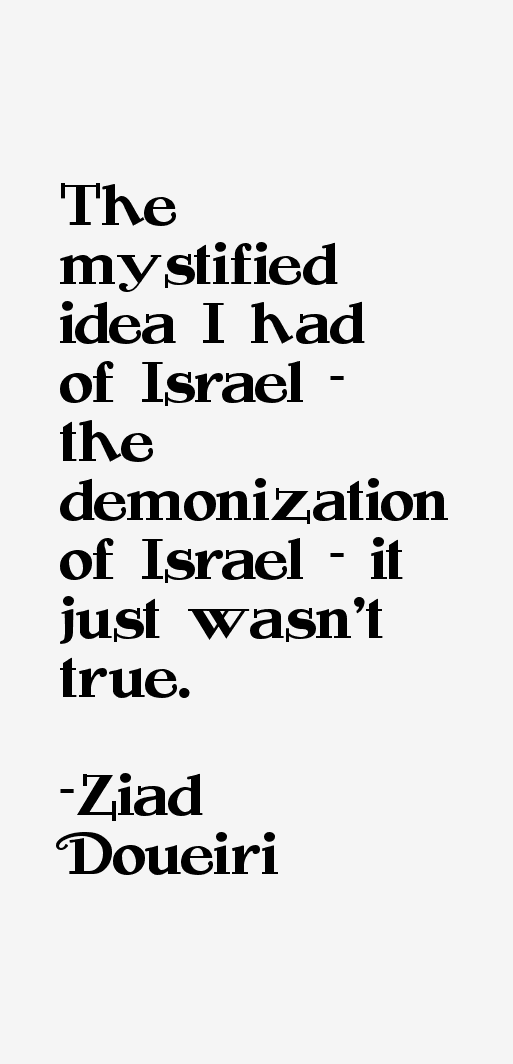
“The mystified idea I had of Israel - the demonization of Israel - it just wasn't true.”
Ziad Doueiri Quotes Rating
No Ratings Yet
Leave A Comment
























